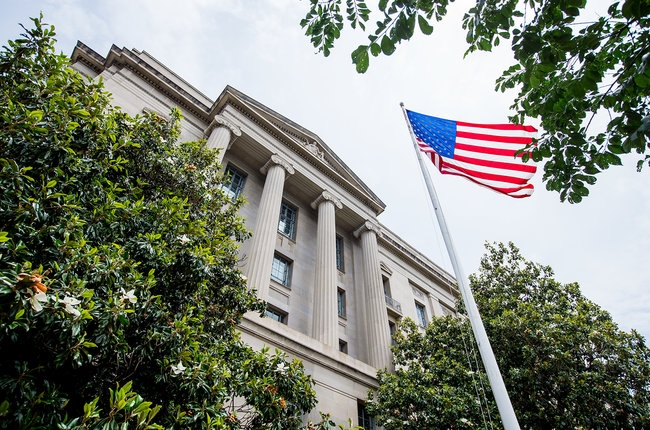Much to the disappointment of the music publishing industry, the U.S. Department of Justice is pursuing its own interpretation of the BMI consent decree, which the department believes compels the performance rights organization practice full-works licensing.
Full-works licensing, also known as 100 percent licensing, applies to songs with multiple writers where ownership is divided, also called a split work, or fractionalized licensing. The DOJ says that a music licensee, or music user such as a radio station, only needs to get a license from one of the rights owners to have a license to legally play the music, a stance that music users have long maintained is correct. Music publishers, on the other hand, contend that that they have always engaged in fractional licensing and that the music user must get a license from all owners of a song in order to play it.
In September, BMI rate court judge Louis Stanton of the U.S. Southern District of New York agreed with music publishers and ruled that the consent decree doesn’t require 100 percent licensing, but the DOJ said it would appeal, with the deadline arriving today (May 18). But that all came down under the Obama administration, and the music industry had been hoping that the change in administration following Obama's second term would result in a change in the DOJ’s stance, and its pursuit of its appeal. Members of the music industry, as well as members of Congress, had been lobbying the new Trump administration not to pursue the appeal and were hoping that they wouldn’t file by today's deadline.
However, those hopes were in vain. The DOJ officially filed its brief with the U.S Court of Appeals for the Second Circuit today.
In its appeal, which was reviewed by Billboard, the DOJ argues, “In the government’s view, BMI’s repertory includes every song, and only those songs for which BMI has the right to license or sublicense on a full-work basis, meaning it has the right to authorize a licensee to publicly perform the song with the need for additional licenses.”
The DOJ claims that BMI is seeking to rewrite this requirement to include a special exception for split works and it notes that while BMI has the right to license some of these split works on a full-works basis, it is asking the court to create an exception for all split works so that it can provide fractional licenses for those songs. That would then require users to get licenses from each of the other songwriters, whether or not they are affiliated with BMI.
The DOJ further argues that the BMI split work stance is not consistent with the decree’s purpose, which is to allow BMI to grant blanket licensing despite its anti-competitive effects. That’s why, the brief argues, the Appeals Court should reverse the District Court’s declaratory judgment that the consent decree neither bars fractional licensing nor requires full-works licensing.
The brief was filed by DOJ attorney Robert J. Wiggers, among other lawyers working for DOJ, as well as Deputy Assistant Attorney General Brent Snyder.
Some sources suggest that the DOJ filing, was just made to maintain a holding pattern, until the new leadership at the agency gets a change to review its position and then decide how to proceed going forward. Makan Delrahim has been nominated to head the U.S. Justice Department's Antitrust Division, but his appointment has yet to be confirmed by the Senate.
Nevertheless, music licensees/users, or those who represent some of them, were pleased by the filing.
“We applaud the Department of Justice’s decision to appeal the declaratory judgment in the BMI case that if left unchallenged would completely undermine the value and purpose of the BMI blanket license, hurting every restaurant, bar, hotel, winery, local broadcaster, digital music service, and retailer that plays music,” the MIC coalition said in a statement. The MIC coalition is a group of trade association whose members license music for use over the airwaves, through the internet and in stores, hotels, restaurants, clubs and taverns.
Following the DOJ's filing, BMI responded. “While we are not surprised the DOJ chose to pursue its appeal, we still hope for the opportunity to sit down with the new administration and educate it about the chaos that would result in the marketplace if the DOJ’s interpretation of BMI’s consent decree were implemented,” BMI president/CEO Mike O’Neill said in a statement. “The DOJ’s 100 percent licensing position, an entirely new interpretation never raised by the Department before, unfairly advantages music users at the expense of the American songwriter and upends a longstanding industry practice that has worked effectively for decades. We believe Judge Stanton’s decision is correct and look forward to vigorously defending our position in the Court of Appeals for the Second Circuit.”
O’Neill further communicated to its songwriter members that BMI is once again ready to “fight on your behalf to protect your rights, royalties and creative freedom. The DOJ’s action today is part of the standard appeals process and BMI’s next step will be to file our response sometime before the fall. We expect this process to continue into 2018, and we will of course keep you updated.”
Likewise, the National Assn. of Music Publishers expressed disappointment with the DOJ’s move.
“It is unfortunate that the DOJ has decided to pursue its appeal of Judge Stanton’s decision, which so clearly and dramatically struck down the Department’s unworkable position of imposing 100 percent licensing,” NMPA president David Israelite said in a statement. “We are confident in BMI’s ability to defend their position and that they will prevail on behalf of songwriters and music publishers. Everyone in the music industry understands that imposing additional burdens on songwriters, and upending the entire industry, is an undeserved punishment of America’s creators, not a solution.”








